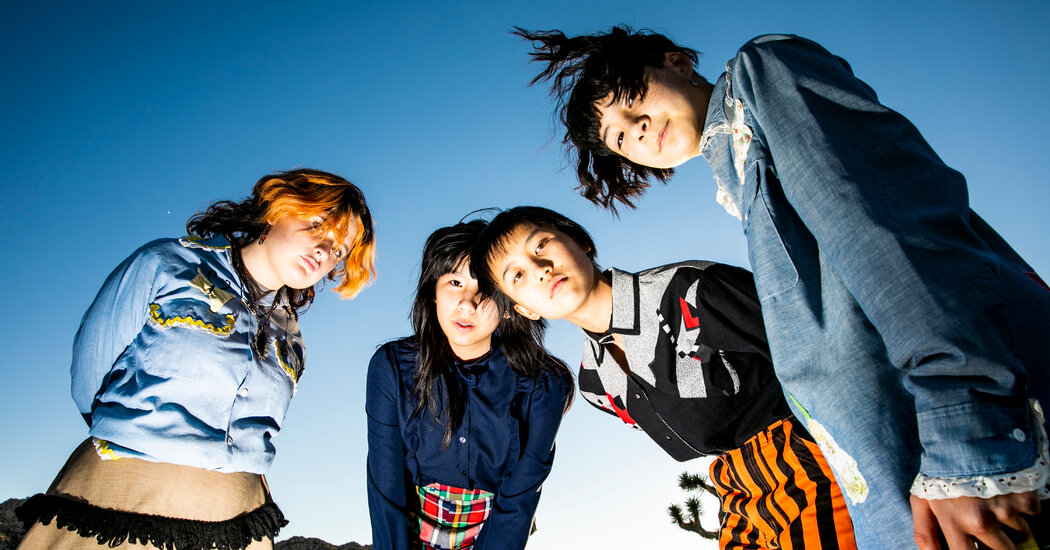
Graduating to global, not just local, attention is something the Linda Lindas are still getting used to, but they’re grateful to know they’re resonating. “People just reach out and say, ‘Oh, you inspired me to pick up the guitar’ or, ‘You’ve inspired my kids,’” Lucia said. “There are so many people that have felt something from something that we’ve done, and have taken the time to message us, and some of them are funny, and some of them are like, ‘Oh, I think you should write a song about all your cats!’ And we already have.”
Karen O, the Yeah Yeah Yeahs frontwoman, guested with the Linda Lindas at their very first performance, at an all-female festival in 2018, when they were a loosely assembled cover band. Even then, “there was no lack of passion and enthusiasm and unbridled expression,” she said in an interview. “The matching berets, the eye makeup — they just seemed really tight.” Four years to the day later, she caught one of their recent, more polished shows. She called it “life-affirming.”
As an Asian American herself, she said, the presence of the Linda Lindas “really speaks to me, because I feel like a lot of us grew up kind of reserved and in the shadow, not in the limelight making music, which is this kind of mainline into self-confidence,” she added. “It’s so inspiring, and so surprising, to see these young girls having that — it took me probably 21 years of stuffing down all these feelings, when it finally exploded in a cathartic way when I was onstage. I could’ve used that when I was 12.”
From their start as kids with a typical schedule of piano and dance classes who enjoyed putting on little shows for their families, the Linda Lindas had a charmed trajectory to the stage. The de la Garza sisters and Eloise are cousins; Bela is a lifelong friend, and their parents are all artists, writers or designers themselves. Lucia and Mila’s dad, Carlos de la Garza, is a Grammy-winning music producer and mix engineer; when his daughters were about 9 and 7, he bought them a guitar and a (tiny) drum kit. They sat unused, for a while, but the festival invitation was the spark — too much fun not to pursue.
“I think it was something that I never thought I could do,” Bela said, in a video made shortly after the band formed, when she was 14. “Finding out it was something I really enjoyed — it’s always constantly about music. It’s just in everything that I do now.”
Soon they were playing showcases that Eloise’s parents, Wendy Lau and Martin Wong, a founder of the influential Asian American culture magazine Giant Robot, helped organize as community benefits, with the girls rotating instruments. Bela had played drums and guitar, and already had an avant-garde performance streak, her mother, Karen Salazar, said. “She’s always been fearless,” her father, Joe Salazar, added.




